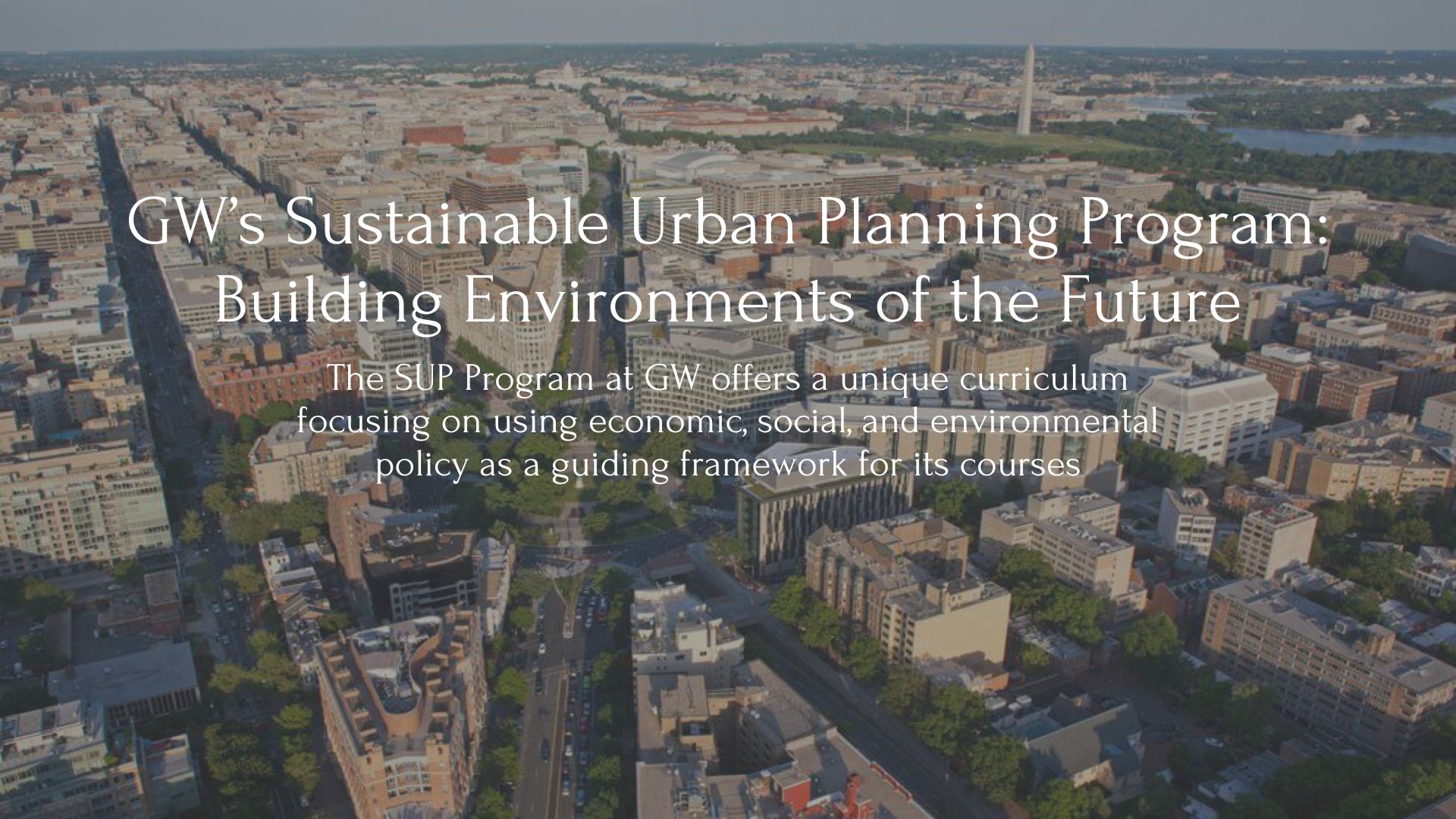The Sustainable Urban Planning (SUP) program at George Washington University was founded in 2011 and has grown rapidly since its inception, with 52 students currently enrolled and 112 students graduating to date. Despite its size, the program offers a close-knit and impactful learning experience. Situated within GW’s College of Professional Studies, the SUP program focuses on equipping students with the skills and knowledge they need to address the complex challenges of urban environments.
Dr. Sandra Whitehead is the director of the SUP program and plays an active role in the academic life of the program. Dr. Whitehead teaches several courses within the program, including the individual capstone course, a research methods course, and Justice, Equity, Diversity, and Inclusion in Urban Planning.
The Justice, Equity, Diversity, and Inclusion course, taught by Dr. Whitehead, examines how to approach structural issues in communities, such as redlining, concentrated poverty, and suburban sprawl, and how they affect the planning of communities. Additionally, the course looks to see how these issues are impacting people’s health and what emerging policies are working in these areas.
The program distinguishes itself from other universities' urban planning programs by emphasizing the “triple bottom line” framework, using economic, social, and environmental policy as a guiding principle. This framework ensures that students are prepared to develop solutions that prioritize community well-being and systematic change when approaching planning decisions.
Dr. Whitehead believes the program's commitment to policy through the “triple bottom line” framework underpins the need to address broader systems and create equitable solutions for communities, particularly those with the fewest choices.
“The SUP program at GW differs from most urban planning degrees in its 48-credit structure, compared to the standard 36 credits,” Dr. Whitehead said. GW’s expanded curriculum includes two mandatory climate-focused courses, making climate change a core element of the program. The curriculum also offers flexibility for students, with 15 credits of electives for students to take within or outside the SUP department.
The SUP program offers a balance between theoretical and practical courses. Students engage in two applied project courses: a group professional project and an individual capstone. The group project involves partnering with a real client. During the fall of 2023, students partnered with the Trust for the National Mall to brainstorm innovative ways to memorialize key American figures and issues.
The individual capstone project allows students to test their knowledge through hands-on research and data interpretation. Graduates often tackle real-world challenges, such as one student’s project on high rents in Silver Springs, Maryland. After realizing there were no apartments within walking distance of the metro with three bedrooms for less than $5,000 per month, this student decided to examine policies facilitating landlords to charge high rents. By conducting this research and presenting the recommendations to local policymakers, he was made an advisor on the county housing board.
According to Whitehead, the capstone experience, which involves a year-long mentorship, is a vital measure of a student's ability to integrate sustainability concepts and present them professionally.
The Sustainable Urban Planning Student Organization plays an important role in the program’s culture. This graduate student organization allows students to contribute to a dedicated website that showcases their capstone projects. The organization is run entirely by students, reflecting the program’s emphasis on collaboration, independence, and professional development. To learn more about the Sustainable Urban Planning Student Organization and the capstone projects of SUP students visit: https://www.gwsupso.us/capstone


